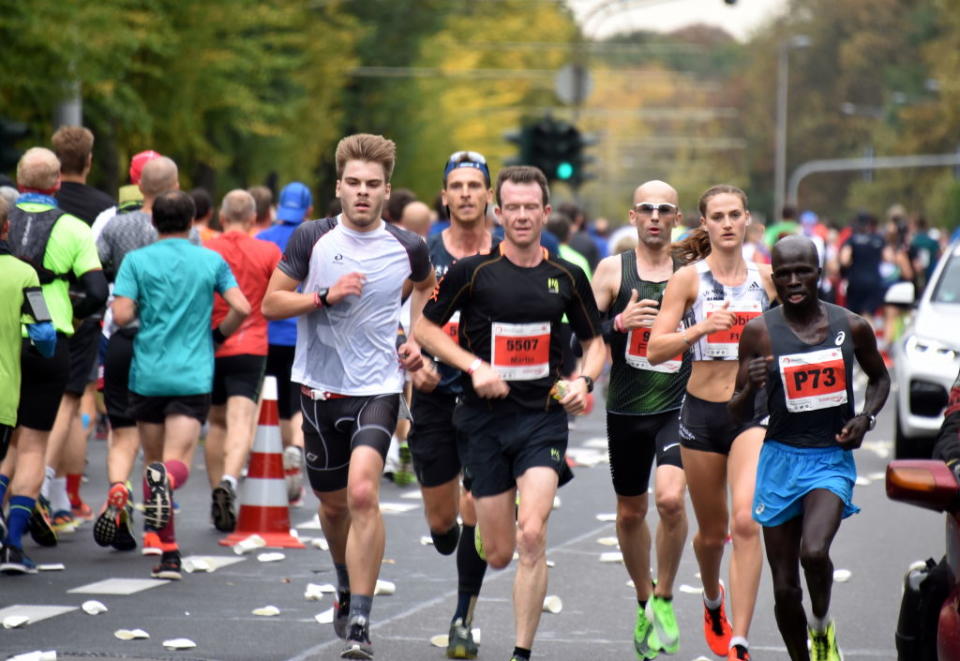The side hustle that lets you travel the world and earn thousands

Marathon runners stand to make over $20,000 from winning a race alone, not to mention the cash they bring in for sponsorship and media.
But if you’re not quick enough to win, or you don’t have the drive to diet and train like marathon runners do, there’s another option: become a pacemaker.
A pacemaker or pacesetter is an athlete who runs along other athletes competing in middle-to-long distance events, particularly ones where they intend to break records, to ensure those athletes keep pace.
Also read: How this Aussie expat travels across Europe and still earns $15,000 a month
Also read: How this Adelaide woman turned a Facebook rant into a lucrative side hustle
Also read: I earn $70k, pay rent in Sydney and eat out everyday
Pacemakers don’t need to run the whole race - in fact, they often just run the first section to ensure runners keep a fast time and don’t try to tactically race.
Then, they’re swapped out for other pacemakers.
But they get to travel the world and stay in top hotels to help athletes win.
And they get paid for it
Pacemakers bring in a hefty fee for helping others win races.
Sammy Tangui, the pacemaker for Olympic 800-metre champion David Rudisha, earnt between $2,000 and $3,000 per race for setting the pace, he told the Courier Mail.
Pacemakers are most often also paid a commission if they stick to their required times for the entire length of their run.
And even pacemakers get sponsorship, with Tangui landing an Adidas deal as well.
Pacemakers also get put up in the same lavish hotels as their partnered athlete.
Can pacemakers win races?
Pacemakers are required to be registered contestants in the race they’re pacing, so they can actually win.
In 1981, pacemaker Tom Byers was hired to keep the pace of English track athlete Steve Ovett in the 1500-metre race, but with a 10 second lead over Ovett in the final lap, Byers decided to continue the race - and win.
And that’s not the only instance - in 1994, the pacemaker for the LA Marathon won the race, and became the US national champion that year.
But that requires pacemakers to run the whole race. However, in marathons, it’s rare that they don’t get swapped out after 10 to 15 kilometres of pacemaking.
Also, winning would compromise their earnings as pacemakers, which means they’re not too keen to do that.
Make your money work with Yahoo Finance’s daily newsletter. Sign up here and stay on top of the latest money, news and tech news.

 Yahoo Finance
Yahoo Finance 